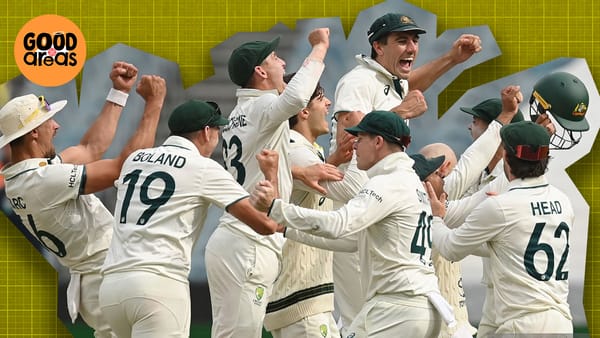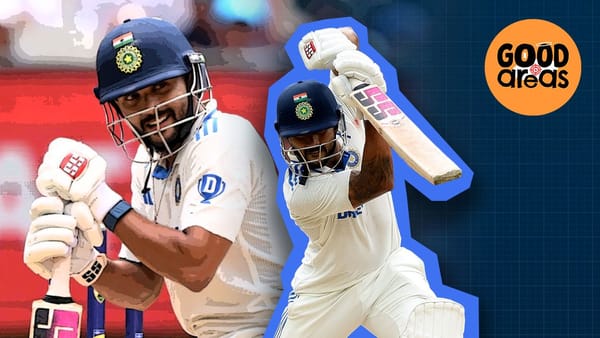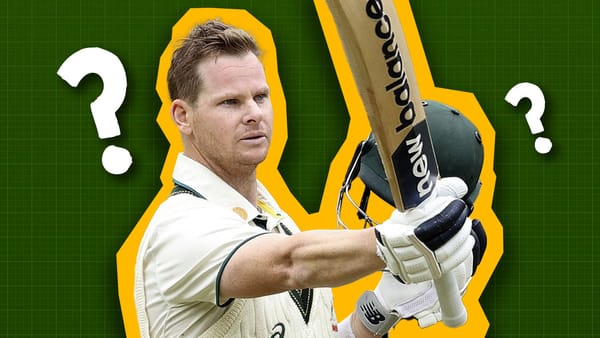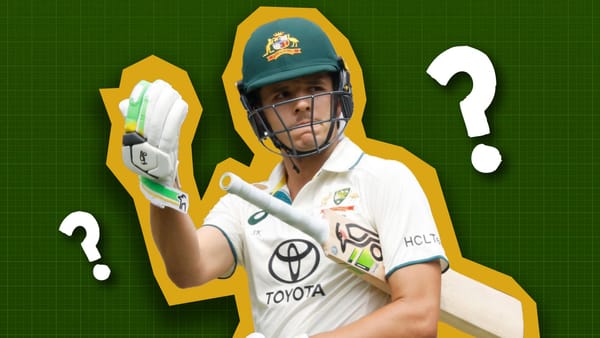One win and a role model
On how upsets and representation can change things in sport
In 2006 Greece played the USA in the semi-final of the FIBA World Championship. The USA team had LeBron James and Dwayne Wade; the Greeks did not have those two guys, or anyone even close to that.
The Greek men weren't a bad side, they had won the Eurobasket the year before, but that was only the second time they'd won. But rarely the best in Europe, their level was usually just out of the medals worldwide. In another sport being the fifth-best team would mean you were pretty good, but in basketball, it meant you were a long way off Team USA.
Yet, the Greeks won that game. 101-95.
It was a huge moment for Greek basketball.
Watching that game was a skinny kid who a doctor thought had a drinking problem because his liver was so dinged up. He had to hawk things on the street to help his family, and he often went without meals. He was a Greek kid to Nigerian immigrant parents and did not automatically qualify for Greek citizenship. And until that match he wanted to be a footballer.
But watching the Greeks beat Team USA inspired him to like basketball. And it wasn't just the win; it was one of the players, Sofoklis Schortsianitis. Or as they called him, Baby Shaq. To this young boy he saw there was a black Greek guy like him scoring against NBA players, and he thought, "if he can do it, so can I".
If you're a basketball fan, you'll probably know this is Giannis Antetokounmpo. Who has gone on to be a better player than Baby Shaq, and is on his way to be as good as the real sized Shaq, maybe better still.
You can hear about this on a new podcast by basketball writer Adrian Wojnarowski. It's a great story on one of the world's most amazing athletes, and someone who made it despite so many obstacles.
“The Giannis Draft,” A three-episode audio series launching today. Listen to Episode 1: apple.co/3kBkhcH
— Adrian Wojnarowski (@wojespn) 1:32 PM ∙ Nov 16, 2020
A few years ago I wrote about women's cricket and how important it is to be on TV to improve the overall quality. A few former male cricketers thought I was crazy. They couldn't get it; they didn't even understand why cricket on TV and having role models could help. In their world, you either wanted to play cricket, or you didn't.
But I knew it didn't work like this, and if you weren't from a cricketing family, or didn't have heroes, and even more so people like you, it didn't even occur to you that you could play.
That's because I was a young writer who never knew any other writers. My mother - a librarian - always told me that writers were people who did other jobs and wrote on the side. No one I ever met did it fulltime. And I wasn't an idiot, there were obviously real work-a-day novelists and screenwriters in the world, but they weren't in my universe, or like me. So even when I would write, I kept my work, because I didn't know anyone to send it too.
My 'Baby Shaq' was the film Saw.

I was 24 when it came out, and because the two filmmakers were Melbourne guys (well, James Wan sort of was) it got so much hype I went to see the first showing. But as much as I liked the film, it as the fact that two RMIT students made it. RMIT wasn't a big deal; it wasn't some elite film school. I knew I could have enrolled there to study film. Wan and Leigh Whannell just seemed like normal people who went to a shitty school, and then came up with a great idea, and made it. And suddenly, a bit like Giannis, I was thinking, wait, why couldn't I do that. Around the same time, I was reading the books of Kevin Smith and Robert Rodriguez, and again, while they weren't from Melbourne, they just seemed like ordinary guys who made films. It all clicked that there was no reason I wasn't a writer. By 2005 I had been accepted into RMIT as a film student, and somehow that led me to ESPN and sitting in a limousine with David Warner.
So I get it. A lot. But the Giannis story shows how it works in sport. There would be no Giannis if Greece weren't good enough for one great upset. And if there wasn't someone in the team that did well, while looking like Giannis, we wouldn't have him either. The USA team were so good that many would think that Greece shouldn't have even been out on the court with them. Team USA had lost eight games in their history at this point. And if they played that game ten times, Greece might only win that one. A few years earlier the idea of teams even playing quality American lineups seemed stupid; they were so much better than everyone else. But sport does allow these upsets, and from wins like this great things grow.
In sports like cricket and rugby that haven't been inclusive or almost all women's and disability sports, these things matter. Just watching your team can be hard if they're not one of the special chosen ones. And sometimes it just takes a spark. You never know where that is going to come from.
Baby Shaq only scored 14 points, and never quite made it to the NBA. The Greek team has never done better than 2006, and even that year they didn't win it all, as Spain beat them in the final. In a couple of years, those 14 points might give Greece the greatest basketballer in the world.




